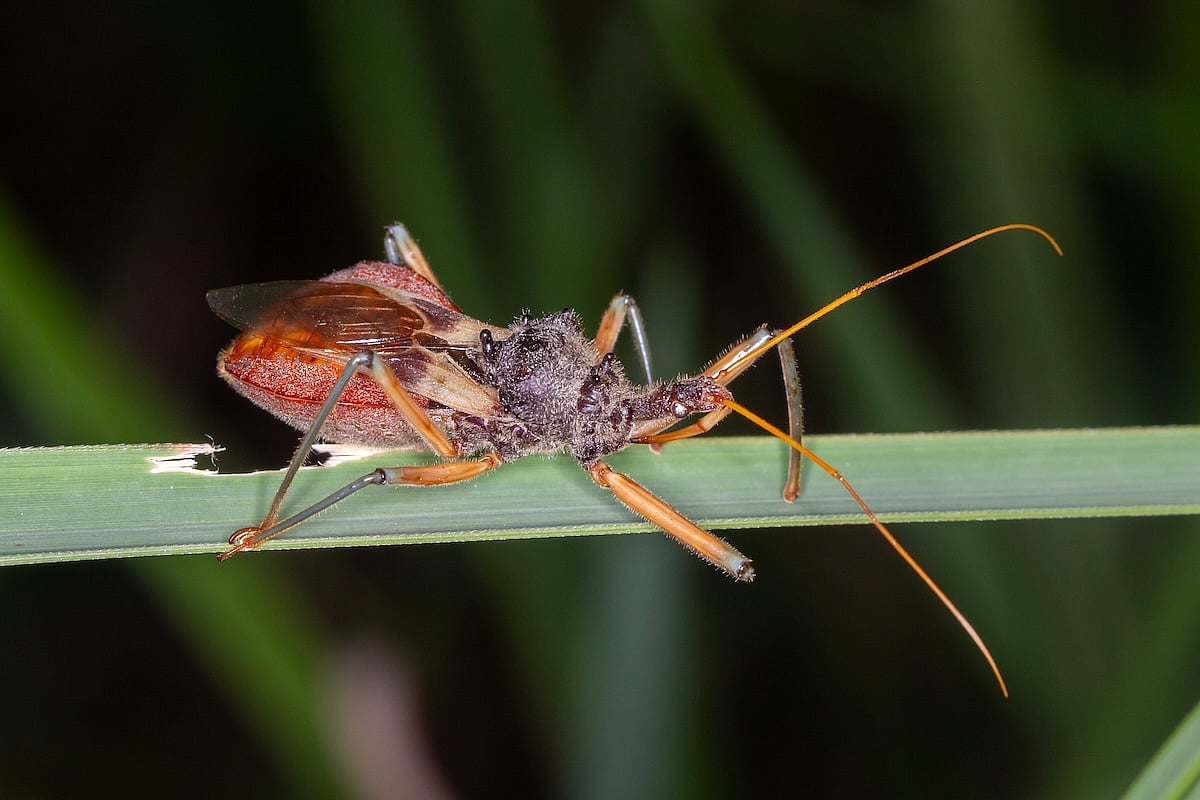'Kissing Bug' Disease Spreading in U.S., CDC Report Says
By I. Edwards HealthDay Reporter
TUESDAY, Sept. 9, 2025 — Chagas disease — a potentially serious illness spread by an insect called the “kissing bug” — may be establishing itself in the United States, according to a new U.S. Centers for Disease Control and Prevention (CDC) report.
The disease is common in 21 countries in the Americas, but growing evidence suggests it may also be becoming endemic in the U.S.
"Autochthonous (or, locally acquired) human cases have been reported in eight states, most notably in Texas. Labeling the United States as non-Chagas disease-endemic perpetuates low awareness and underreporting," the authors wrote in the CDC’s journal Emerging Infectious Diseases.
The triatomine insect — often called the "kissing bug" — has now been reported in 32 states, according to CBS News.
Most reported U.S. cases are in Texas, but others have been documented in California, Arizona, Tennessee, Louisiana, Missouri, Mississippi and Arkansas.
While researchers aren’t sure if kissing bugs are spreading more widely, the insects are being spotted more often. Experts say this is owing to more human encounters and better research.
Chagas disease is caused by the Trypanosoma cruzi parasite, which lives in kissing bugs and can infect both humans and animals.
The bugs get their nickname because they often bite people on the face while they sleep. After biting, they leave droppings containing the parasite, according to UCLA Health.
"People might scratch or rub bug feces into a bite wound, their eyes or mouth without realizing it, which allows the parasite to enter their body," the CDC says.
An estimated 8 million people worldwide and 280,000 in the U.S. have Chagas disease, often without knowing it. The illness doesn't spread through casual contact and is not passed person to person like a common cold.
Chagas disease has two stages:
-
Acute phase: Shortly after infection, people may develop fever, eyelid swelling (Romaña’s sign), fatigue, body aches, rash, diarrhea, vomiting and loss of appetite.
-
Chronic phase: If untreated, the parasite can damage the heart, esophagus or colon years after infection, sometimes causing serious health issues.
Some people never show symptoms, the CDC says.
There is no vaccine to prevent Chagas disease, so experts recommend people protect themselves:
-
Use insect repellent and wear clothes that cover the skin.
-
Stay in well-built places when traveling (such as screened or air-conditioned hotel rooms).
-
Avoid raw fruits and vegetables that may be contaminated.
-
Seal windows and remove piles of wood, rocks and trash near homes.
Sources
- Emerging Infectious Diseases, September 2025
- CBS News, Sept. 8, 2025
Disclaimer: Statistical data in medical articles provide general trends and do not pertain to individuals. Individual factors can vary greatly. Always seek personalized medical advice for individual healthcare decisions.
© 2025 HealthDay. All rights reserved.
Posted September 2025
Read this next
FDA Warns of Juice Recall Linked To Potential Foodborne Illness
MONDAY, Sept. 8, 2025 — Parents in New Jersey, Pennsylvania and New York may want to pause before they pack a juice drink in their child’s lunchbox. Evergreen...
DermaRite Expands Recall of Creams and Sanitizers Over Infection Risk
WEDNESDAY, Sept. 3, 2025 — DermaRite Industries has expanded a voluntary recall of several over-the-counter creams, soaps and sanitizers that may be contaminated with...
FDA Urges Safe Use of Hyperbaric Oxygen Therapy Devices
WEDNESDAY, Aug. 27, 2025 -- The U.S. Food and Drug Administration has sent letters to health care providers alerting them to the importance of following manufacturer instructions...
More news resources
- FDA Medwatch Drug Alerts
- Daily MedNews
- News for Health Professionals
- New Drug Approvals
- New Drug Applications
- Drug Shortages
- Clinical Trial Results
- Generic Drug Approvals
Subscribe to our newsletter
Whatever your topic of interest, subscribe to our newsletters to get the best of Drugs.com in your inbox.

